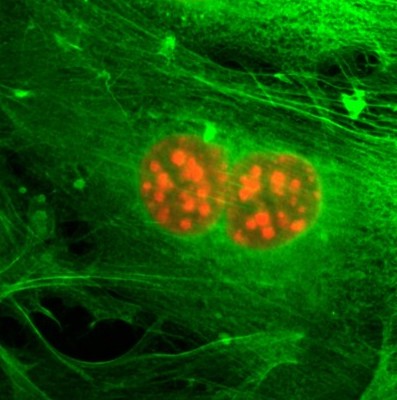
Cell fusion is a process by which two cells ('parent cells') fuse to create a hybrid cell. When the two parent cells fuse, their genetic contents (blueprints) are combined, possibly giving the hybrid new abilities.
There are times when cell fusion is a normal event, such as fertilization, and differentiation. Cancer cancer cells hijack this normal process to fuse with cells that have the ability to move, such as macrophages (a type of immune cell). When cancer cells fuse with these cells, they can gain the ability spread. The spread of cancer cells to other areas of the body is known as metastasis. Metastatic cancer is considered to be more advanced and is linked with worse prognoses and survival outcomes. For these reasons, scientists have been studying cell fusion and how it relates to cancer growth and spread.
A recent study using cells and mice found that the fusion of precancerous cells produces aggressive hybrid cells that are more likely to spread, grow, and survive, compared to their parent cells. The hybrid cells have unusual combinations of genes. The resulting diversity and instability, serves as a blueprint for more aggressive behavior.
Because the hybrid cells show the markings of both parent cells they may have been missed in previous studies of cancer spread (which only looked for cancer cell traits). The new results may have shown a way to better identify the cancer cells most likely to spread and cause severe disease.
Source: NCI Center for Cancer Research
https://visualsonline.cancer.gov/details.cfm?imageid=9881
